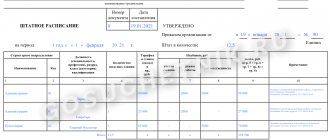Author of the article: Roman Gavrilov Last modified: January 2021 2498
Entering into an inheritance by proxy is permitted, but for this it is necessary to confirm the powers of the principal. This must be done through a notary. The heirs by law or will must draw up a document in the name of the representative, which will detail the powers of the representative. Without a power of attorney, legal representatives of minors and incapacitated legal successors have the right to accept an inheritance. To do this, they must confirm their relationship with their legal successors by presenting a guardianship order, a guardian's certificate or a minor's birth certificate.
Is it possible to enter into an inheritance by proxy?
Of course, every citizen has the right to impose certain obligations on another person. But for this you need to issue a power of attorney, certified by a notary. Thus, the heir must contact the notary office in advance.
If we are talking about minors or incapacitated heirs, then their interests will be represented by legal guardians. In this case, a power of attorney is not needed. Of course, the exception is those parents whose rights are limited in relation to their children. If there are no parents, the interests of the children can be represented by trustees, adoptive parents, or organizations for orphans.
( Video : “Is it possible to enter into an inheritance by proxy”)
Powers of a Trustee
The principal needs to think in advance what actions the representative will need to perform. Naturally, they must be indicated in the document. If some authority is not specified, then the attorney will not be able to perform this action. In fact, he will not have the legal right to do so. And no government bodies will allow you to perform a certain action if it is not specified in the document. If we are talking about entering into an inheritance by proxy, this document usually contains the following powers:
- filing applications;
- submitting requests to various government agencies;
- payment of related expenses;
- affixing signatures on various documents;
- receiving original certificates and extracts;
- register property and put it on record;
- enter into agreements regarding inheritance;
- sell property or alienate it in another way.
It is extremely important that the trust document lists all the actions that the representative plans to perform. If necessary, other actions can be added to the listed powers. For example, if the principal allows you to delegate powers to third parties, you need to write that the power of attorney has the right of subrogation. It is necessary to understand that a fiduciary is vested exclusively with those powers to which the principal gives permission. Naturally, the representative will not be able to perform an action that is not specified in the document.
Nuances
The power of attorney institution has some features that must be taken into account when registering and further work.
In what cases will the issue have to be resolved through court?
When drawing up a power of attorney, you need to take into account this point if you have to resolve controversial issues through the court.
For example:
- other claimants to the inheritance do not agree with the distribution of shares among all declared heirs;
- the heir sent his representative only after 6 months from the date of the testator’s death, since he did not know that the relative had died.
In such cases, the power of attorney must indicate that the authorized person is the legal representative. He will be able to attend meetings, as well as submit applications, complaints, claims and lawsuits on behalf of the heir.
It must be remembered that the court will be on the side of a citizen who missed the deadline for entering into an inheritance only for a good reason.
Receipt
This procedure is usually formalized by a special power of attorney, which provides instructions for receiving the inheritance. If the list of powers indicates only standard legal transactions entailing entry into legal succession, the power of attorney is limited to going through a standard procedure. In the event of a legal dispute, a new document will be required.
If it is advisable to refuse the inheritance, the power of attorney also loses its force and does not allow the performance of those functions that were transferred by the principal. A general power of attorney allows for the performance of all required functions in the interests of a participant in the procedure, including participation in legal disputes and renunciation of an inheritance disproportionately burdened by creditors. The validity of such a document ends with the receipt of a certificate of inheritance.
Entry with subsequent resale
In this case, when drawing up the document, you must enter the appropriate clause requiring permission to sell the entire volume of property received, or part of it. If we are talking about a partial sale, you need to provide a list of property to be sold. When selling real estate or a vehicle, they additionally indicate the authority to register real estate in Rosreestr.
A provision must be made on the permissibility of receiving funds upon sale. If the resolution of financial issues is not entrusted, then it should be indicated that the required amount is transferred to the personal account of the attorney. It is permissible in the document to indicate the amount for which the property must be sold, or the minimum amount below which auctions cannot take place.
A general power of attorney does not give the right to sell. To do this, you need to draw up a new general or special power of attorney, under which the property can be sold. An exception is the General Power of Attorney for the right to sell. But in this case, no actions of the attorney can be regulated by the owner, which can lead to significant property risk.
Refusal
To renounce, you can issue a one-time power of attorney, allowing a single action related to renunciation of the inheritance. In this case, you need to specify the conditions for refusal. If it is provided in favor of another heir, here you will need to indicate the details of the person to whom the share is transferred.
If there is a general power of attorney, the representative can make a decision to refuse inheritance depending on the situation, based on the interests of the principal.
In case of refusal
There are cases when refusing an inheritance is more appropriate than accepting it. In this case, the power of attorney must directly contain a condition on vesting the representative with appropriate powers.
If the refusal is made by a legal representative, then he will not need to issue a power of attorney for this. In this case, you will only need to prove your authority (kinship, guardianship, etc.).
Sources
- https://SocPrav.ru/doverennost-na-oformlenie-nasledstva
- https://ros-nasledstvo.ru/doverennost-na-vedenie-nasledstvennogo-dela-i-oformlenie-nasledstva/
- https://sudguru.ru/nasledstvo/doverennost-na-oformlenie-nasledstva/
- https://allo-urist.com/nasledstvo-po-doverennosti/
- https://moepravo.guru/dokumenty/doverennosti-i-iskovye-zayavleniya/dov-na-nasledstvo.html
- https://runasledstvo.ru/doverennost-na-prinyatie-nasledstva-oformlenie-dokumenty/
- https://zakonportal.ru/nasledstvo/oformit-nasledstvo-po-doverennosti
[collapse]
How to correctly draw up a power of attorney for inheritance in 2021
It is allowed to use free form to compile the document. You can also find a standard template on our website. Naturally, the power of attorney is drawn up in writing. To certify the document, you will have to contact a notary office. It is the notary who ensures that the document is drawn up correctly. You can also entrust its execution to the office’s specialists. This is how you can be sure that no important points will be missed. It is highly desirable that all information entered into the document be as detailed as possible.
Particular attention should be paid to the choice of representative. You need to know that if it is a minor citizen or an incapacitated person, government authorities will consider this document void. After all, according to the law, only people who are fully responsible for their actions can be representatives. When choosing a trustee, many people prefer lawyers who will protect the interests of the principal in various authorities.
Quite often you may encounter a situation where the heir is a minor citizen who has not yet reached the age of majority. As you might guess, he cannot independently issue a power of attorney to enter into an inheritance. To do this, you will need permission from your official guardian or legal representative. It is worth noting that this guardian has the right not only to write out a power of attorney for someone, but also to independently represent the interests of the minor ward. Moreover, in this case, he does not need a power of attorney, because he is officially the representative of the heir.
What should be in a power of attorney
If the principal asks the employees of the notary office to draw up a document, you can be sure that they will enter all the necessary points here. But in the event that the principal decides to enter information into the document independently, he needs to remember important points:
- the title of the document, which should reflect the essence of its preparation;
- date and city of execution of the power of attorney;
- information about the legal heir;
- if the heir is an incapacitated or minor citizen, his interests will be represented by a legal guardian. Detailed information about it should also be present in the power of attorney;
- information about the person who will inherit by proxy. His passport details and other information that will allow him to be identified without any problems are indicated;
- lists all the actions that the representative plans to perform;
- It would also be useful for the principal to indicate whether the representative has the opportunity to draw up a transfer of power to someone else;
- It is recommended to indicate the validity period of the document. Although this point cannot be called mandatory, since the power of attorney will be considered valid without it;
- information about the notary office that certified the power of attorney;
- the document must be certified by the autographs of the responsible persons. Firstly, it is signed by the principal himself. Secondly, the autograph of the notary who certified the document is affixed here. There is an opinion that the signature of the representative is also mandatory. But that's not true. It is desirable, but even without it the power of attorney will be considered valid.
There is a certain layer of people who most often become attorneys
- Close relatives are the most popular option. If relatives have the same surnames, it’s doubly better, the proof of relationship is unambiguous, so these persons are most suitable for the role of verified persons. Relatives are the most preferable option.
- Often, close friends and good acquaintances turn out to be closer than real relatives. Some people trust their affairs more to them than to blood relatives. The main requirement is a good reputation. If a friend had, or has difficulties with the law, any other dark spots in his biography, it will be almost impossible to notarize a power of attorney for such a person; the representative must be one hundred percent clear before the law.
- People who do not want to owe anything to third parties hire notary offices. Of course, this option will be the most unprofitable, but the most correct. By paying for certain services, you can be sure that all work will be carried out on time, documents will be filled out, signatures will be provided. For a notary, this process is standard work.
You can entrust your inheritance to different people, the main thing is to make a reliable choice, because if a person gives the right to dispose of his inheritance to a third party, there will be no turning back.
Procedure for entering into inheritance by power of attorney
As practice shows, few people know how to enter into an inheritance correctly. For example, if the heir wishes to do this after the expiration of the allotted period, it is possible that he will have to prove his right to the property through the court. If you familiarize yourself with the procedure for receiving an inheritance, you can save yourself from complex and unnecessary procedures.
Inheritance procedure
As a rule, inheritance is obtained in two ways: by law and by will. Thus, after the death of a relative, the legal heir must contact a notary at the place of residence of the deceased. As for inheritance under a will, you need to contact the notary office where it was drawn up and, accordingly, is stored. In addition to the standard package of documents, the heir must also present a power of attorney, which gives the authority to enter into the inheritance to someone else. If the heirs have disputes, the court deals with them. Conventionally, the procedure for entering into an inheritance can be divided into several stages:
- preparation of documents;
- submitting a corresponding application to a notary office;
- valuation of inherited property;
- payment of state duty;
- receiving a document confirming receipt of inheritance;
- registration of property rights with government agencies.
Statement
In fact, it is the application of the heir that can be called the main document with the help of which the procedure for entering into inheritance begins. The document is drawn up in free form. The heir must indicate in the application that he intends to enter into the inheritance with the help of his representative, for whom the corresponding power of attorney is issued.
( Video : “The procedure for registering real estate as property by inheritance”)
Appointment of a power of attorney
This power of attorney to receive an inheritance is a document that allows you to transfer a certain number of powers, including opening, registration processes, and other matters, to a third party to whom the heir fully trusts his rights.
The grantor must reflect in the document certain powers to receive an inheritance, including direct acceptance of the inheritance, otherwise this will lead to additional problems and unnecessary signatures on the part of the heir.
The validity period of the power of attorney extends to the entire period of receipt of the inheritance. If the deadline for receipt is delayed, the power of attorney is extended accordingly. The authorized representative is fully authorized to act; he can sign, visit courts, and communicate with a notary.
Documentation
To complete the inheritance transaction, you will need to collect a whole package of documents:
- original passport of the heir;
- identity card of the authorized person;
- death certificate;
- certificate from the last place of registration of the deceased;
- documents confirming the relationship between the deceased and the heir. They will be needed if the inheritance is carried out according to the law;
- documents for inherited property;
- extract from Rosreestr;
- a receipt indicating payment of the state duty.
If we are talking about entering into an inheritance by power of attorney, then the representative must have it along with this package of documents. In order for the notary to be able to establish the identity of the authorized person, he must have a passport with him.
Who is better to choose to conduct inheritance business?
The initiator of the power of attorney is the applicant for participation in the inheritance procedure. He draws up a document, presenting his own passport, proving his own identity. He can register as a trustee and transfer powers to participate in the procedure to the following citizens:
- close (other) relative;
- one of the persons participating in the inheritance procedure;
- lawyer conducting inheritance cases;
- another person, at the discretion of the principal.
The main requirement for the parties is to be 18 years old and have mental capacity. On behalf of minors (incapacitated) participants in the inheritance, documentation, including trust documents, is drawn up by their legal representatives.
IMPORTANT: Notarial acts performed in favor of a close relative: spouse, parents or children, allow for a reduction in fees upon presentation of documentation confirming the degree of close relationship.
Expenses
The legislation determines that the party claiming the property is obliged to pay all costs associated with registration. Naturally, it does not matter who exactly will pay the state duty, appraiser services and other expenses. This can be not only the heir himself, but also his representative acting by proxy. The main expenses are related to the payment of state duties. Its size depends on the degree of relationship between the heir and the deceased. So, if a close relative inherits, the state duty is 0.3% of the appraised value. In addition, there are restrictions on the amount. For heirs who have documented close kinship, the amount of the state duty should not exceed 100 rubles. This applies to spouses, parents, children, sisters and brothers. All other heirs are not considered close relatives. This category will have to pay 0.6% of the value of the property. In this case, the duty can reach a million rubles.
In addition, the heirs will have to pay for the services of a specialist who evaluates the property. Its type directly affects the final cost. For example, if we are talking about an apartment, the appraiser will take about 3 thousand rubles. When receiving a certificate from the BTI, you will have to pay an additional 500-600 rubles. A car appraisal can cost 3-5 thousand rubles. The final cost depends on the condition of the vehicle, its type, and whether it can be used for commerce.
Another cost item is the registration of ownership of the property. For example, if we are talking about real estate, registering property rights will cost about 2,000 thousand rubles.
Further actions of the representative
After receiving the certificate, it is necessary to carry out state registration of property rights. To register the transfer of ownership of real estate, you need to contact Rosreestr.
Documents can also be submitted through the MFC. The registration procedure takes from 7 to 12 days . The basis for the provision of public services is the application of the heir or his representative. A list of required documents is attached to it.
To register a vehicle, you must contact the territorial traffic police department. Documents must be submitted within 10 days.
Otherwise, the heir faces a fine. The countdown begins from the moment the certificate is received. Traffic police officers carry out the necessary registration actions during the working day.
Deadlines
You must declare your desire to inherit within six months after the death of a relative. If the interests of the heir will be represented by an attorney, he must also submit a corresponding application during this period. This period is intended for close relatives who are considered first-line heirs. After this period, other heirs can lay claim to the property. If more than six months have passed since death, and a close relative only wishes to inherit, he will have to set aside his interests in court.
Powers of a Trustee
What rights does a trustee have? A power of attorney allows you to perform the following legal actions:
- submit applications (claims);
- make inquiries to government agencies;
- pay necessary expenses;
- receive extracts, certificates;
- sign agreements;
- register property;
- sell property.
Important! A comprehensive list of powers is displayed in the power of attorney. If necessary, it is possible to provide for the transfer of rights to another person.
Example. The heir learned about the death of a relative. The man was unable to come to the funeral due to the large distance between the cities (more than 5 thousand km). To enter into an inheritance, the applicant made a power of attorney for his friend. The representative lived in the same city as the testator. Just in case, the heir gave the trustee the right of subrogation. By oral agreement between the heir and the representative, it was decided to reissue the power of attorney only to a practicing lawyer. Soon the trustee encountered difficulties. One of the documents revealed a data discrepancy. The legal fact had to be established in court. The representative referred the matter to a local lawyer. As a result of the trial, the representative was able to complete the inheritance registration procedure.
Thus, the representative is vested with rights and responsibilities solely in accordance with the list of powers specified in the power of attorney.
Find a lawyer
The law provides for the possibility of accepting inheritance by proxy. But the document must specify the corresponding powers of the representative. Any individual can represent the interests of the principal. The only requirement is full legal capacity. The main difficulty lies in the list of powers.
The heir independently decides what actions the representative should perform. For example, submit an application, obtain a certificate and/or register ownership. To avoid misunderstandings, it is advisable to consult a lawyer. This opportunity is available on our website. A request for a call is submitted through the feedback form. If necessary, you can order a draft power of attorney from our lawyers.
In preparing this material, we were guided by the norms of the current legislation of the Russian Federation in the field of inheritance and related branches of law, and also used available materials from judicial and legal practice in inheritance cases.
It must be taken into account that the article describes only typical ways to resolve legal issues, but each case is unique.
If you want to find out how to solve your particular problem, please use the online consultant form or call the phone numbers listed on the website. Get rid of possible problems in the future!








